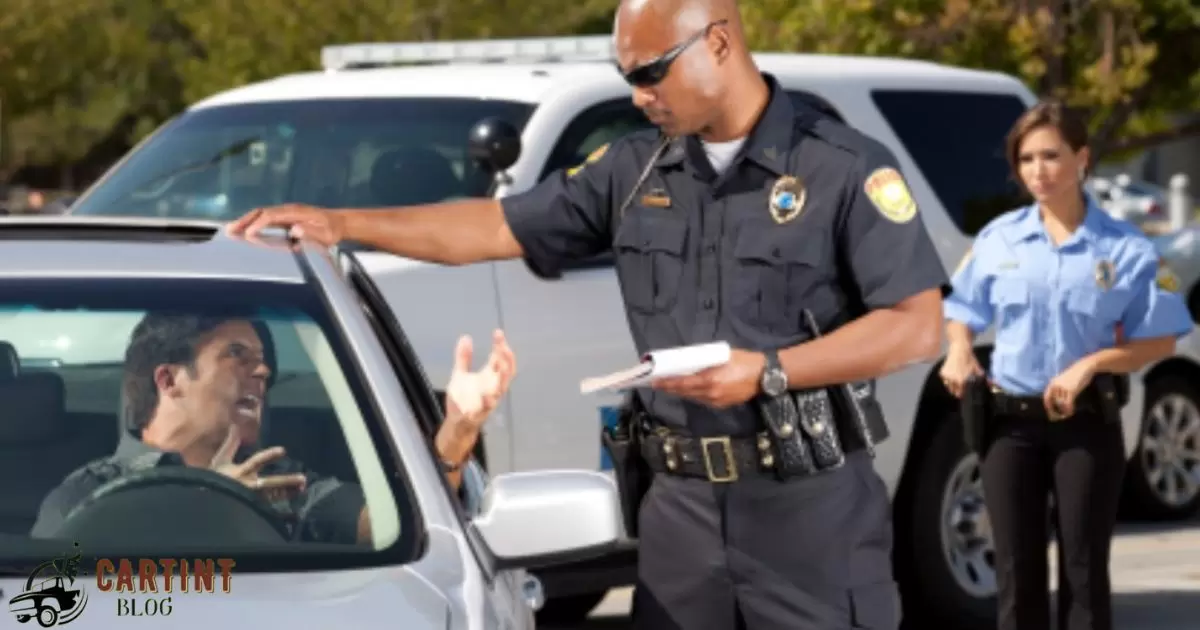It refers to the level of attention law enforcement officers give to vehicles with tinted windows. It depends on the context. Depending on your state and circumstances, a law enforcement officer may view tinted windows as a traffic violation or dangerous activity depending on their jurisdiction and intent.
Do Cops Really Care About Car Tint? It’s a question that resonates with every driver who has ever considered tinting their car windows. As we navigate the roads, the answer to this question may impact our choices and experiences behind the wheel. Let’s delve into the intriguing intersection of vehicle aesthetics and law enforcement perspectives.
Tinted windows have become a common customization for many car owners, offering privacy and protection from the sun. The question of whether cops care about tint becomes crucial in understanding potential legal implications and interactions on the road. Exploring the dynamics between law enforcement and tinted windows sheds light on a nuanced aspect of vehicle regulations.
People with over-tinted windows, how often do cops pull you over?
Having heavily tinted windows may attract police attention frequently. Cops often pull over drivers with extremely dark window tints. They seem to care about car tint, possibly due to safety concerns or the desire to see inside the vehicle during traffic stops.
If you’re wondering about the likelihood of getting pulled over with over-tinted windows, it appears to be a common occurrence. Police officers seem to pay attention to this aspect of vehicle compliance, raising questions about the extent of their concern for car tint and the reasons behind their actions.
Frequency of encounters with law enforcement
Encounters with law enforcement vary in frequency based on factors like location, time of day, and individual behavior. In high-crime areas, people may encounter law enforcement more frequently than in low-crime neighborhoods.
Late-night hours or weekends often see increased police presence, impacting the likelihood of interactions.As for car tint, police attitudes vary. Some officers prioritize safety concerns related to visibility, while others may enforce tint regulations more strictly.
Overall, it depends on the specific officer and jurisdiction whether cops genuinely prioritize car tint violations or if they focus on more pressing issues. Understanding local laws and regulations can help individuals navigate encounters with law enforcement regarding car tint without unnecessary complications.
Common reasons for being pulled over
Many drivers get pulled over for common reasons like speeding, running red lights, or not wearing seat belts. Tinted windows can attract police attention, as they make it challenging for officers to see inside the car.
Police officers often find it difficult to assess the situation and may become more suspicious when unable to observe the occupants. Therefore, cars with tinted windows can increase the likelihood of being pulled over as officers prioritize safety and visibility during traffic stops.
Are police more suspicious of cars with tinted windows?
Police often view cars with tinted windows as more suspicious. Tinted windows can obscure visibility, raising concerns about potential illegal activities inside the vehicle. Law enforcement officers may pay extra attention to such cars during routine patrols or traffic stops.
However, the extent to which cops care about car tint varies. Some prioritize it as a safety concern, while others may focus on more pressing issues. Ultimately, the perception of tinted windows by law enforcement varies, and officers’ attention to this detail depends on individual preferences and department priorities.
Factors contributing to police suspicion
Police suspicion often arises from a combination of factors. One significant factor is behavior, as officers pay attention to unusual actions or nervous behavior during interactions. The appearance of a vehicle can also contribute to suspicion.
One specific aspect that catches the attention of law enforcement is heavily tinted windows. Officers may perceive such tinted windows as a potential safety concern, as they limit visibility and can raise suspicions about illegal activities happening inside the vehicle.
Therefore, understanding these factors can help individuals navigate interactions with law enforcement and promote a safer community.
Relationship between tinted windows and criminal activity
Tinted windows in cars have sparked debates about their connection to criminal activities. Some argue that criminals use tinted windows to conceal their actions, making it harder for law enforcement to observe illicit activities inside vehicles.
On the other hand, the link between tinted windows and criminal behavior isn’t universally accepted. While some officers focus on more pressing matters, instances like a dealership selling a car with illegal tint can draw attention to these regulations.
Many believe that focusing on tinted windows might divert attention from more critical matters, leading to the question: do cops really care about car tint? The answer varies, with some officers seeing it as a minor concern while others consider it a potential factor in criminal investigations.
What state allows the darkest tint?
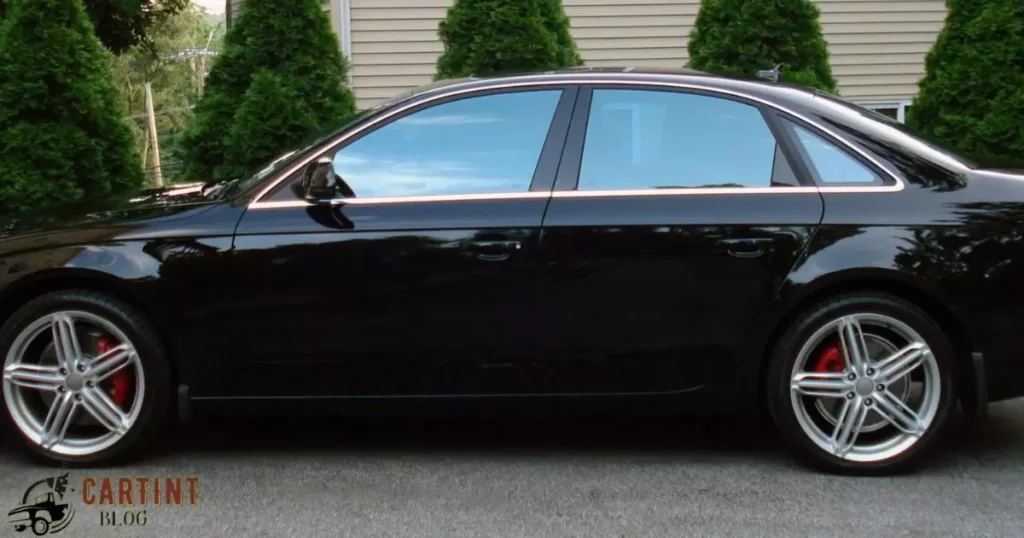
In the United States, window tint regulations vary by state. Some states allow darker tint than others. For example, in Florida, you can have a darker tint compared to states like California. It’s essential to check your state’s specific laws to ensure compliance.
When it comes to law enforcement and tinted windows, the level of concern varies among police officers. While some may prioritize enforcing tint regulations, others may not consider it a top priority. Overall, it’s advisable to follow your state’s guidelines to avoid any potential issues with law enforcement regarding your car’s window tint.
Variations in window tint regulations across states
- Window tint regulations vary from state to state in the U.S., leading to different legal limits on tinted car windows.
- Police officers generally enforce these regulations, but their level of strictness can differ, with some officers paying more attention to tint violations than others.
- In certain states, law enforcement tends to prioritize more severe offenses over window tint violations, making it less likely for drivers to face strict consequences.
- To avoid issues, drivers should be aware of their state’s specific tint laws, ensuring compliance with local regulations.
- While some cops may not prioritize tint violations heavily, it’s crucial for motorists to be informed and adhere to the established tint limits to avoid potential fines or citations.
- Ultimately, understanding the variations in window tint regulations and being proactive can help drivers navigate these rules and minimize the risk of encountering problems with law enforcement.
Window Tint Regulations Across U.S. States
| State | Legal Tint Limit | Enforcement Strictness | Police Priority |
| Alabama | 32% front, 12% rear | Moderate | Low |
| California | 70% front, no limit rear | High | Moderate |
| Texas | 25% front, 25% rear | Varies | Varies |
| New York | 70% front, 70% rear | Strict | High |
| Florida | 28% front, 15% rear | Low | Low-Moderate |
The table includes examples, and the actual tint limits and enforcement may vary. It’s essential to refer to each state’s specific laws for accurate information.
States with lenient tinting laws
Many states have lenient tinting laws, allowing drivers to tint their car windows to a significant extent. In these states, law enforcement officers generally don’t prioritize enforcing tinting regulations. Instead, they focus on more critical issues, such as speeding or reckless driving.
As a result, drivers with heavily tinted windows often go unnoticed by the police.
The perception of tinted windows varies among law enforcement agencies. While some officers may not prioritize tint violations, others consider them a matter of public safety.
In states with strict tinting laws, police officers are more likely to enforce these regulations, as they believe that excessively dark tint can hinder visibility and pose a potential threat on the road.
Here’s a simple table summarizing the information about states with lenient tinting laws and the varying attitudes of law enforcement towards car tint:
| Aspect | States with Lenient Tinting Laws | Law Enforcement Attitude |
| Tinting Regulations | Many states have lenient laws | Some states have strict regulations |
| Extent of Tint Allowed | Significant extent permitted | Strict limits in certain states |
| Law Enforcement Priority | Not a top priority | Varied priorities among law enforcement |
| Enforcement Focus | Focus on major violations | Varies; some prioritize tint violations |
| Driver Visibility Concerns | Limited concern in lenient states | Strict concern in states with regulations |
| Potential Impact on Driving Safety | Considered low in lenient states | Deemed a safety issue in strict states |
This table highlights the differences in tinting laws and law enforcement attitudes across states, emphasizing the varying levels of concern for tint violations and their perceived impact on road safety.
Is 25% tint legal in Florida?
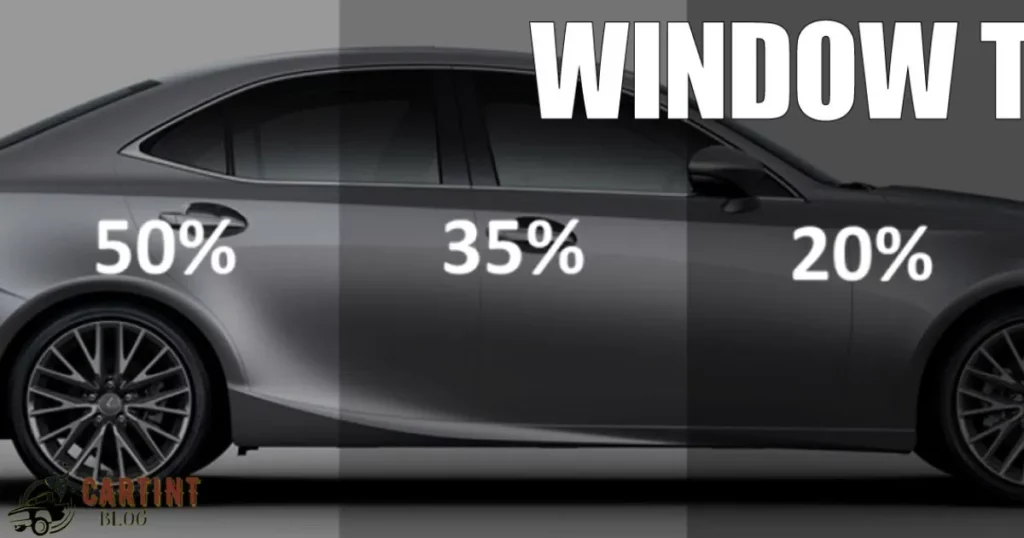
In Florida, a 25% tint is not legal. The law requires a minimum of 28% visible light transmission for the front side windows. So, having a 25% tint could lead to fines and legal consequences.
When it comes to enforcement, some cops do take car tint seriously. They may issue tickets if your tint violates state regulations. So, it’s essential to be aware of tint laws to avoid any issues with law enforcement in Florida.
Specific tint percentage regulations in Florida
In Florida, specific tint percentage regulations govern car window tinting. The law mandates that front side windows must allow at least 28% of light to pass through. Police officers in Florida do care about car tint violations.
They often enforce these regulations during routine traffic stops, issuing fines to drivers with excessively dark window tint. Therefore, it’s crucial for motorists to be aware of and comply with the state’s tinting laws to avoid potential legal consequences.
Here’s a simple table summarizing the information
| Aspect | Details |
| Location | Florida |
| Tint Percentage Regulations | Front side windows must allow at least 28% |
| Enforcement by Police | Yes |
| Enforcement Approach | Routine traffic stops |
| Consequences of Violations | Fines issued to drivers with dark tint |
| Motorists’ Responsibility | Be aware of and comply with tinting laws |
This table provides a quick overview of the specific tint percentage regulations in Florida, the active enforcement by police officers, and the potential consequences for drivers who violate these regulations.
Consequences of violating tint laws in Florida
In Florida, violating tint laws can lead to consequences. Law enforcement actively enforces these regulations, with fines and citations for non-compliance. Cops pay attention to car tint, ensuring drivers adhere to the specified limits.
Having excessively dark window tint can result in penalties. Police officers prioritize enforcing tint laws to maintain road safety. It’s crucial for drivers in Florida to be aware of these regulations to avoid legal issues and ensure a smooth driving experience.
Can Virginia police pull you over for tinted windows?
Yes, Virginia police can pull you over for tinted windows. The law sets specific limits on window tint darkness, and exceeding these limits can lead to a traffic stop.Cops do care about car tint because it can affect visibility and safety.
Tinted windows that are too dark may hinder law enforcement’s ability to see inside the vehicle, raising concerns about potential illegal activities. To avoid getting pulled over, it’s essential to comply with Virginia’s window tint regulations.
Virginia’s window tint laws
- Virginia’s window tint laws set specific guidelines for how dark car windows can be.
- Police officers in Virginia do care about car tint, as violating these laws can result in fines.
- The legal limit for tint darkness varies for front, back, and rear windows in the state.
- To avoid trouble, it’s essential to adhere to Virginia’s window tint regulations to ensure compliance and avoid fines.
- The enforcement of car tint regulations in Virginia reflects the state’s commitment to road safety.
- Officers actively monitor tint levels during routine traffic stops, emphasizing the importance of compliance.
- Knowing and following the rules on window tinting not only keeps you on the right side of the law but also promotes safer driving conditions.
- In Virginia, staying within the legal limits for window tinting is a simple way to prevent potential legal issues and maintain road safety.
| Heading | Details |
| Virginia’s Window Tint Laws | 1. Set specific guidelines for tint darkness on car windows. |
| 2. Legal limit varies for front, back, and rear windows. | |
| 3. Violating these laws can result in fines. | |
| 4. Importance of adhering to regulations to ensure compliance and avoid legal consequences. | |
| Enforcement and Police Focus | 1. Reflects Virginia’s commitment to road safety. |
| 2. Officers actively monitor tint levels during routine traffic stops. | |
| 3. Emphasizes the importance of compliance for safer driving conditions. | |
| 4. Staying within legal limits prevents potential legal issues and maintains road safety. |
Enforcement practices in Virginia
Enforcement practices in Virginia are strict, especially when it comes to car tint. Police officers actively monitor tint levels on vehicles. They prioritize ensuring compliance with the law and may issue tickets for violations.
Cops in Virginia take car tint seriously, and it’s not just about meeting regulations—it’s about road safety. They actively enforce tint limits to enhance visibility and promote safer driving conditions. So, if you’re driving in Virginia, make sure your car tint complies with the rules to avoid any unwanted attention from law enforcement.
Is California strict on window tint?
In California, window tint laws are strict. The regulations set specific limits on how dark car windows can be tinted. Cops actively enforce these rules, regularly checking vehicles for compliance. If your window tint exceeds the allowed darkness, you may face fines or other consequences.
When it comes to car tint, law enforcement in California does care. Officers conduct inspections during traffic stops and can issue citations for illegal window tint. It’s crucial to be aware of and adhere to the state’s tinting regulations to avoid penalties and ensure a smooth driving experience.
Overview of California’s tint regulations
California’s tint regulations are strict and vary based on the type of window and the vehicle’s location. Front side windows must allow at least 70% of light, while rear and back windows can have any darkness. Violating these rules may result in fines.
When it comes to law enforcement, some officers in California take car tint violations seriously. While not all cops prioritize tint infractions, it’s essential for drivers to comply with regulations to avoid potential fines and ensure road safety. Checking and adhering to tint regulations can help drivers steer clear of unwanted attention from law enforcement in the Golden State.
Penalties for violating tint laws in California
In California, breaking tint laws can result in penalties. If your car windows are too dark, you might get a ticket, and fines can range from $25 to $197. It’s crucial to stay within the legal limits to avoid legal consequences.
When it comes to cops and car tint, they do care. Law enforcement often enforces tint regulations during routine traffic stops. To stay on the right side of the law, make sure your car windows comply with California’s tint guidelines.
How do police officers feel about dark tinted windows on cars?
Police officers generally dislike dark tinted windows on cars because it makes it challenging for them to see inside the vehicle. The inability to assess the occupants and potential threats raises concerns for their safety during traffic stops.
In most cases, cops prioritize transparency for their own security and efficient law enforcement.While opinions may vary among officers, many agree that excessive window tinting raises suspicion.
It can hinder their ability to gauge the situation and may lead to heightened caution during routine interactions. In essence, the general sentiment among police officers is that they do care about car tint, as it directly affects their ability to ensure public safety and enforce the law effectively.
Law enforcement perspective on tinted windows
From a law enforcement perspective, tinted windows in cars often raise concerns. Police officers prioritize safety, and heavily tinted windows can impede visibility, making it challenging to assess the occupants and their activities.
Clear visibility is crucial for officers to ensure the safety of everyone on the road and effectively carry out their duties.While not all officers may focus on car tint specifically, it remains an aspect they consider during routine traffic stops.
Tinted windows can create a barrier that makes it harder for law enforcement to assess potential threats or illegal activities inside the vehicle. Ultimately, maintaining a balance between personal preferences and safety regulations is essential for both drivers and law enforcement.
Impact on officer safety and interactions
Police officers prioritize their safety during interactions. Dark car tints can hinder visibility, raising concerns for officers. Clear visibility ensures a safer environment for both cops and citizens.
Officers emphasize the importance of transparent windows. Clear views into vehicles aid in assessing potential threats quickly. Ultimately, officers care deeply about car tint regulations as it directly impacts their safety during daily interactions on the job.
Why do cops pull over cars with tinted windows at night?
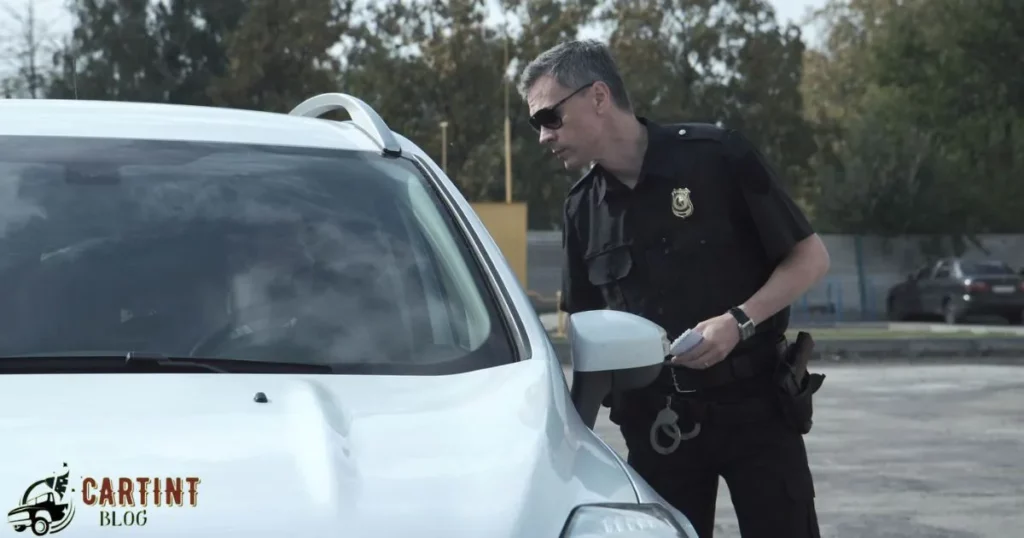
Cops pull over cars with tinted windows at night to ensure road safety. Dark window tints can obstruct visibility, making it difficult for law enforcement to assess the situation during traffic stops.
In many cases, tinted windows violate regulations that exist to maintain clear visibility for both drivers and officers.While some cops may prioritize more pressing matters, car tint violations are not ignored. Law enforcement cares about car tint because it can be a safety concern and may be against the law.
Pulling over vehicles with tinted windows helps uphold traffic regulations and ensures that everyone on the road can navigate safely, especially during nighttime when visibility is already reduced.
Increased concerns during nighttime
Many people worry about increased concerns at night. People wonder if cops truly prioritize enforcing car tint regulations. The visibility of tinted windows can impact safety, raising questions about law enforcement’s attention to this issue.
Car owners often question the significance of tinted windows to law enforcement. Some doubt whether police genuinely prioritize addressing tint-related concerns, especially during nighttime. Understanding the importance of clear visibility and addressing these worries can contribute to safer road conditions for everyone.
Visibility issues for law enforcement
Many people worry about increased concerns at night. People wonder if cops truly prioritize enforcing car tint regulations. The visibility of tinted windows can impact safety, raising questions about law enforcement’s attention to this issue.
Car owners often question the significance of tinted windows to law enforcement. Some doubt whether police genuinely prioritize addressing tint-related concerns, especially during nighttime. Understanding the importance of clear visibility and addressing these worries can contribute to safer road conditions for everyone.
Can cops pull you over for window tint?
Yes, cops can pull you over for window tint. Police officers often enforce tint regulations to ensure visibility and safety on the road. They may issue a citation or ask you to remove excessive tint during a traffic stop.
Cops do care about car tint because it can pose a risk, hindering their ability to see inside the vehicle. Tinted windows might hide illegal activities or weapons, raising concerns for law enforcement. To avoid issues, it’s essential to be aware of and comply with window tint regulations in your area.
Legal basis for traffic stops related to window tint
Traffic stops related to window tint are based on specific legal regulations. Laws vary by jurisdiction, but generally, officers enforce limits on how dark car windows can be tinted. Police officers pay attention to window tint during traffic stops because it affects visibility and can be a safety concern.
In many places, exceeding the allowed tint darkness can result in fines or citations. It’s crucial for drivers to be aware of their local regulations to avoid legal issues. Overall, law enforcement’s focus on window tint stems from the goal of ensuring road safety and adherence to established standards.
Common scenarios leading to stops
People often wonder why they get pulled over by the police. One common reason is tinted car windows. Cops regularly stop vehicles with dark window tints, as it makes it challenging for them to see inside and assess the situation.
So, do cops really care about car tint? Absolutely. Tinted windows raise concerns for law enforcement as they hinder visibility, potentially posing a safety risk. When it comes to traffic stops, window tint is one detail that cops do pay attention to.
Window tint laws in PA
In Pennsylvania, window tint laws dictate that vehicles must have a light transmission of at least 70% for the front side windows and 70% for the windshield. The rear side and back windows, however, can have a lower light transmission, but it should not go below 70%.
Cops in PA do enforce these tint regulations, and violations can result in fines. It’s important to be mindful of the window tint percentages to avoid any legal issues while driving.While not all police officers may prioritize window tint violations, many still enforce these laws during routine traffic stops.
To ensure compliance, it’s advisable to adhere to the specified tint percentages for each window. While some may question whether cops really care about car tint, it’s evident that adherence to window tint laws can help drivers avoid unnecessary fines and legal complications in Pennsylvania.
Specific regulations in Pennsylvania
In Pennsylvania, specific regulations govern car tint. The rules outline permissible levels of tint darkness for windows, ensuring compliance is essential. Cops actively enforce these regulations, emphasizing the importance of adhering to tint limits to avoid penalties.
When it comes to car tint, law enforcement in Pennsylvania genuinely cares. Officers routinely check vehicles for compliance with tint regulations, making it crucial for drivers to be aware of and follow these rules. Stay informed about tint limits to ensure a hassle-free driving experience in the state.
Penalties for non-compliance
Are you wondering about the consequences of not following the rules? Penalties for non-compliance with car tint regulations can include fines and even license points. Police officers actively enforce these regulations, showing a real concern for ensuring drivers adhere to the tint limits.
Curious about how much attention cops give to car tint? In reality, law enforcement takes the issue seriously, regularly checking for tint violations during routine traffic stops. It’s not just a minor concern – officers actively address and penalize non-compliance with car tint regulations to maintain road safety.
Exceptions to the PA window tint law
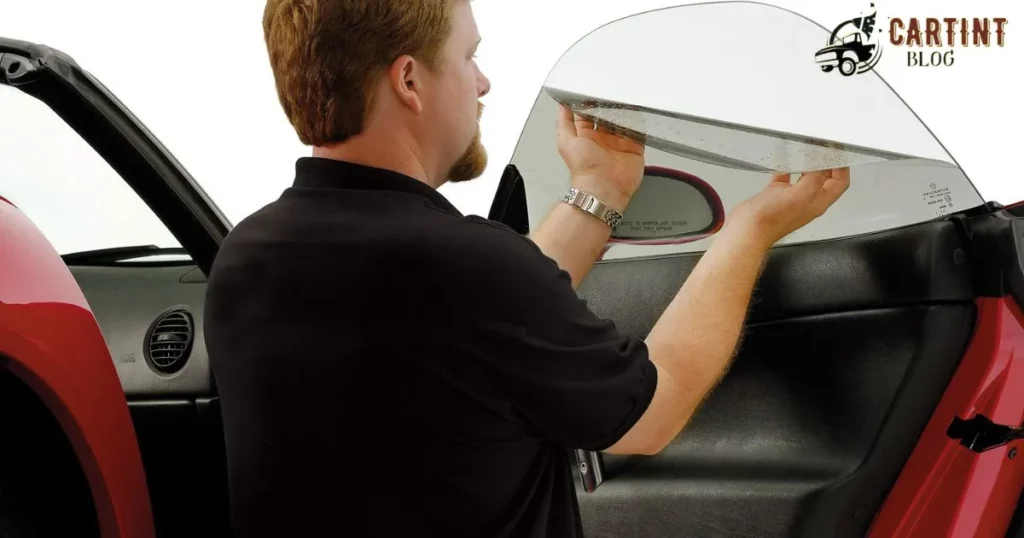
In Pennsylvania, the law regulates window tint on cars, but there are exceptions. If you have a medical condition requiring tinted windows, you can get an exemption. Also, vehicles like trucks and buses have different rules.
When it comes to law enforcement, some cops in Pennsylvania do care about window tint. While not all officers prioritize it, some may issue citations if the tint is excessively dark. It’s essential to be aware of the regulations and ensure your car complies to avoid any issues with the law.
Situations where tint regulations may not apply
Tint regulations typically don’t apply in private parking lots or on off-road vehicles. In these situations, enforcement is often lenient, and drivers have more freedom with their window tint. Some states may have varying regulations, and law enforcement’s focus on tint violations can vary based on local priorities.
When it comes to whether cops care about car tint, the answer varies. In general, police officers may overlook minor tint violations, especially if they have more pressing issues to address.
If the tint is extremely dark or poses a safety concern, law enforcement is more likely to take notice and enforce the regulations. It’s essential for drivers to be aware of local laws and strike a balance between personal preference and compliance to avoid unnecessary trouble with the police.
Criteria for exemptions
When it comes to exemptions for car tint, the criteria are straightforward. Most states have specific regulations regarding tint darkness, and exemptions are usually granted for medical conditions. If you have a valid medical reason, you may be allowed to have darker tint on your car windows.
As for whether cops really care about car tint, the answer varies. In some areas, law enforcement may prioritize other issues over tint violations. However, if your tint is excessively dark or violates local regulations, you might catch the attention of the police. It’s essential to be aware of the tint laws in your area to avoid any potential issues with law enforcement.
Why The Police Despise Illegal Window Tint
Illegal window tint is disliked by the police because it hinders their ability to see inside vehicles during traffic stops. This tint can pose a safety risk, making it difficult for officers to assess the situation and determine if there are any potential threats.
Illegal window tint violations provide law enforcement with a reason to pull over a vehicle, allowing them to address other potential issues like expired tags or driving under the influence.While it might seem trivial, cops do care about car tint because it affects their job and overall safety.
Having clear visibility into vehicles enables police officers to carry out their duties more efficiently and ensures a safer environment for both law enforcement and the public. Therefore, understanding and adhering to window tint regulations can contribute to smoother interactions with the police during routine traffic stops.
Negative impact on law enforcement operations
Car tint can hinder law enforcement by reducing visibility into vehicles. Dark tinted windows make it challenging for cops to assess potential threats during traffic stops, impacting their safety.
This limits officers’ ability to identify occupants and assess the situation quickly.While some argue that car tint provides privacy and protection from the sun, law enforcement often sees it as a safety concern.
Officers prioritize transparency in vehicles to ensure a safer working environment and efficient handling of traffic stops. Striking a balance between individual preferences and law enforcement needs remains a topic of ongoing discussion.
Reasons for strong disapproval
People strongly disapprove of car tint for a few key reasons. First, it hinders visibility, making it difficult for drivers to see clearly, especially at night. This poses a safety risk on the road, leading to concerns about accidents and overall public safety.
Some argue that tinted windows provide a cover for illicit activities, as they can conceal actions inside the car from public view. This perception has led to a belief that individuals with heavily tinted windows may be attempting to hide something, raising suspicions and contributing to a negative view of car tint.
Overall, the disapproval stems from concerns about safety and the potential for misuse, shaping a perception that questions whether law enforcement truly cares about the impact of car tint on public welfare.
Why Law Enforcement Hate Illegal Vehicle Tinting
Many law enforcement officers strongly dislike illegal vehicle tinting. The reason is simple: dark tints make it difficult for officers to see inside vehicles during traffic stops. This lack of visibility raises safety concerns, as it hinders their ability to assess potential threats or illegal activities inside the car.
Contrary to popular belief, cops do care about car tint. It’s not just a matter of personal preference; rather, it’s a safety issue for both officers and the general public. Illegal tints not only obstruct the view for law enforcement but can also contribute to accidents and crime by providing cover for those looking to evade the law.
Safety concerns associated with illegal tinting
Illegal car tinting raises safety concerns. Dark window tints can reduce visibility, posing risks on the road. Law enforcement actively monitors and enforces tint regulations to ensure road safety.
Many wonder if cops genuinely care about car tint.
The reality is that police often prioritize tint violations as they directly impact public safety. Strict enforcement helps maintain clear visibility and prevents potential accidents on the streets.
Reduction in Visibility
Reduced visibility due to car tint concerns law enforcement. Police officers prioritize road safety, making it crucial for them to enforce regulations on window tint. Tinted windows can hinder visibility, raising potential safety risks, and this is why cops pay attention to car tint to ensure clear visibility for everyone on the road.
When assessing car tint, police officers focus on maintaining optimal visibility levels. Clear windows contribute to safer driving conditions, helping law enforcement uphold traffic regulations and reduce the likelihood of accidents. So, yes, cops genuinely care about car tint as it directly impacts road safety.
Do cops enforce window tint laws in North Carolina?
In North Carolina, cops actively enforce window tint laws. They regularly check vehicles to ensure compliance. If your car’s tint is too dark, you might face penalties.
When it comes to car tint, cops do care. They prioritize safety and visibility on the road. So, it’s essential to abide by window tint regulations to avoid any issues with law enforcement in North Carolina.
Overview of tint laws in North Carolina
In North Carolina, tint laws regulate the darkness of window tint on cars. The law specifies the percentage of light that must pass through the windows. Generally, front side windows must allow at least 35% of light, while the back and rear windows can have darker tint.
Do cops really care about car tint? Yes, they do. Law enforcement officers in North Carolina actively enforce tint regulations. If your window tint violates the law, you may be subject to fines, and officers often use tint meters during traffic stops to check compliance. It’s essential to be aware of and adhere to the tint laws to avoid legal issues on the road.
Do cops care about tint in Georgia?
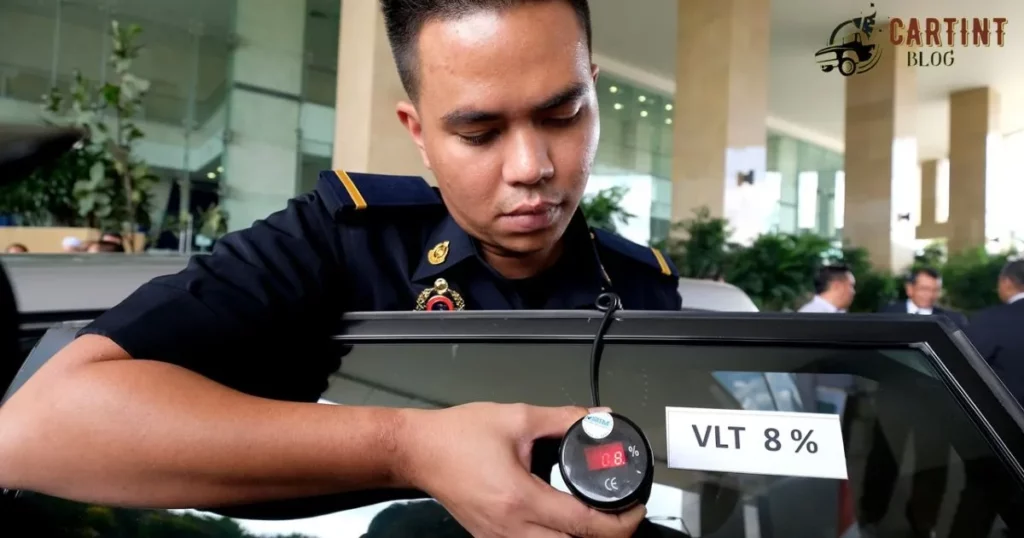
In Georgia, law enforcement pays attention to car tint. If your windows are too dark, you might get pulled over. Cops in Georgia take car tint seriously, so it’s essential to stay within the legal limits to avoid any issues.
When it comes to car tint, law enforcement in Georgia does care. They actively enforce tint regulations, and having windows that are too dark may lead to a traffic stop. It’s crucial for drivers to be aware of and comply with the state’s tinting laws to prevent any encounters with the police related to their vehicle’s window tint.
Georgia’s stance on window tint regulations
Georgia has strict regulations on window tint for cars. The law specifies the maximum darkness allowed for tinted windows, aiming to ensure safety for both drivers and law enforcement. Cops actively enforce these regulations, regularly checking vehicles for compliance during routine traffic stops.
Many drivers wonder if police officers truly care about window tint violations. The reality is that law enforcement takes car tint seriously, viewing it as a matter of public safety. Drivers in Georgia should be aware of and adhere to the state’s window tint regulations to avoid fines and ensure a safer driving experience.
Do Michigan cops care about tint?
In Michigan, do police officers pay attention to window tint on cars? Yes, they do. Law enforcement in Michigan takes car tint seriously, and officers regularly enforce tint regulations.
If your car windows are darker than allowed by the law, you might attract the attention of the police, leading to potential consequences.When it comes to car tint, police officers generally prioritize safety and adherence to regulations.
They actively enforce tint laws to ensure that drivers maintain clear visibility on the road and comply with state regulations. So, if you’re considering tinting your car windows in Michigan, it’s crucial to be aware of and follow the established tint limits to avoid any unwanted encounters with the police.
FAQs
Is car tint a significant concern for Michigan police?
Absolutely, Michigan police take car tint seriously and actively enforce tint regulations to ensure road safety.
What are the consequences of having illegal window tint in Michigan?
Having windows darker than allowed by the law may attract police attention, leading to potential consequences such as fines or citations.
Do police officers prioritize car tint violations during routine stops?
While it may not be the primary focus, police officers do pay attention to car tint violations during routine stops and enforce regulations as needed.
Are there specific limits on car tint in Michigan?
Yes, Michigan has specific regulations regarding the darkness of car tint, and exceeding these limits can result in legal consequences.
Why do police care about car tint?
Police care about car tint to promote road safety by ensuring that drivers have clear visibility, and enforcing tint regulations helps maintain a secure driving environment.
Conclusion
In the world of law enforcement, the interest in car tint is no trivial matter. Michigan cops indeed pay attention to the darkness of your car windows. Their concern is not just about aesthetics but centers on safety regulations.
It’s clear that maintaining the right tint is crucial to avoid catching the eye of the police, ensuring a smoother and lawful drive.The answer to the question, “Do cops really care about car tint?” is a resounding yes.
Police officers are vigilant about enforcing tint regulations, emphasizing the importance of compliance for both the safety of drivers and adherence to the law. So, next time you contemplate tinting your car windows, remember that it’s not just about style – it’s about driving responsibly within the bounds of the law.

